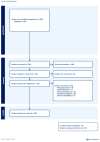Evaluating the Impact of Heat Stress on Placental Function: A Systematic Review
- PMID: 39200720
- PMCID: PMC11354433
- DOI: 10.3390/ijerph21081111
Evaluating the Impact of Heat Stress on Placental Function: A Systematic Review
Abstract
Ambient heat stress poses a significant threat to public health, with rising temperatures exacerbating the risks associated with pregnancy. This systematic review examined the associations between heat stress exposure and placental function, synthesizing methodologies from the existing literature to inform future research approaches. Analyzing 24 articles, it explores various study designs, temperature exposure parameters, pregnancy windows, and placental outcome variables. Findings across human and animal studies reveal diverse effects on placental weight, efficiency, blood flow, anatomy, gene expression, and steroid levels under heat stress conditions. While animal studies primarily utilize randomized controlled trials, human research relies on observational methodologies due to ethical constraints. Both demonstrate alterations in placental morphology and function, underscoring the importance of understanding these changes for maternal and fetal health. The review underscores the urgent need for further research, particularly in human populations, to elucidate mechanisms and develop interventions mitigating heat stress's adverse effects on placental health. Ultimately, this synthesis contributes to understanding the complex interplay between environmental factors and pregnancy outcomes, informing strategies for maternal and fetal well-being amidst climate change challenges.
Keywords: childbirth; climate; methods; placenta; pregnancy.
Conflict of interest statement
The authors declare no conflicts of interest.
Figures
Similar articles
-
Use of biochemical tests of placental function for improving pregnancy outcome.Cochrane Database Syst Rev. 2015 Nov 25;2015(11):CD011202. doi: 10.1002/14651858.CD011202.pub2. Cochrane Database Syst Rev. 2015. PMID: 26602956 Free PMC article.
-
Differential intestinal microbiome response to heat stress in two rabbit maternal lines: a comparative analysis using Random Forest, BayesC, and PLS-DA.J Anim Sci. 2025 Jan 4;103:skaf206. doi: 10.1093/jas/skaf206. J Anim Sci. 2025. PMID: 40574696 Free PMC article.
-
Impact of ambient heat exposure on pregnancy outcomes in low- and middle-income countries: A systematic review.Womens Health (Lond). 2024 Jan-Dec;20:17455057241291271. doi: 10.1177/17455057241291271. Womens Health (Lond). 2024. PMID: 39500870 Free PMC article.
-
Prescription of Controlled Substances: Benefits and Risks.2025 Jul 6. In: StatPearls [Internet]. Treasure Island (FL): StatPearls Publishing; 2025 Jan–. 2025 Jul 6. In: StatPearls [Internet]. Treasure Island (FL): StatPearls Publishing; 2025 Jan–. PMID: 30726003 Free Books & Documents.
-
Study protocol for the Bio-HEAT study: Investigating the Biological pathways from HEAT exposure to preterm birth and other adverse maternal and child health outcomes in South Africa.Wellcome Open Res. 2025 Jun 6;10:121. doi: 10.12688/wellcomeopenres.23616.2. eCollection 2025. Wellcome Open Res. 2025. PMID: 40600127 Free PMC article.
References
-
- Jones B., O’Neill B.C., McDaniel L., McGinnis S., Mearns L.O., Tebaldi C. Future population exposure to US heat extremes. Nat. Clim. Chang. 2015;5:652–655. doi: 10.1038/nclimate2631. - DOI
-
- NOAA National Centers for Enviornmental Information Monthly Global Climate Report for Annual 2022. [(accessed on 26 July 2023)];2023 Available online: https://www.ncei.noaa.gov/access/monitoring/monthly-report/global/202213.
-
- IPCC Intergovernmental Panel on Climate Change . Climate Change 2021: The Physical Science Basis. IPOC Change; Geneva, Switzerland: 2021.
-
- Pal J.S., Eltahir E.A.B. Future temperature in southwest Asia projected to exceed a threshold for human adaptability. Nat. Clim. Chang. 2016;6:197–200. doi: 10.1038/nclimate2833. - DOI
Publication types
MeSH terms
Grants and funding
LinkOut - more resources
Full Text Sources


